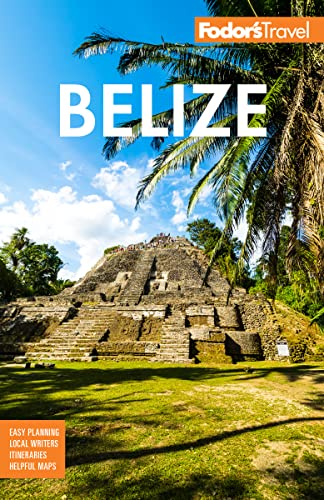Safety
Crime
Belize City has a bad rep for crime, especially in the poverty-ridden sections of Belize City's South Side, but it rarely involves visitors. When it does, Belize has a rapid justice system: the offender often gets a trial within hours or days and, if convicted, can be sent to prison ("the Hattieville Ramada") the same day. Tourist police patrol Fort George and other areas of Belize City where visitors convene. Police are particularly in evidence when cruise ships are in port. If you avoid walking around at night (except in well-lighted parts of the Fort George area), you should have no problems in Belize City.
Outside of Belize City, and possibly the rougher parts of Dangriga and Orange Walk Town, you'll find Belize to be safe and friendly. Petty theft, however, is common all over, so don't leave cameras, cell phones, and other valuables unguarded.
Thefts from budget hotel rooms occur occasionally. Given the hundreds of thousands of visitors to Belize, however, these incidents are isolated, and the vast majority of travelers never experience any crime in Belize.
The road from the Belize border toward Tikal has long been an area where armed robbers stopped buses and cars, and there also have been incidents at Tikal Park itself. Mexico’s Los Zetas drug cartel and other drug groups have been active in Northern Guatemala. Ask locally about crime conditions before traveling to Tikal. Crime also spills over the border in Cayo from Guatemala, as poor Guatemalan squatters seek land in the Mountain Pine Ridge and elsewhere. Xateros, who are seeking the prized Xate palms used by florists, also cross the border into the Chiquibul wilderness or Pine Ridge, and a few violent incidents have occurred between them and members of the Belize Defence Force. Visitors to Caracol Maya site usually go in a caravan protected by Belize soldiers. In 2016, the long-standing claim by Guatemala to some Belize territory in southern Belize again arose as an issue between the two neighbors. Shots were exchanged between Guatemalan and Belize forces. Despite the tension between the two governments, tourist travel wasn't disrupted.
American citizens should consider enrolling in the U.S. Statement Department’s Smart Traveler Enrollment Program (travelregistration.state.gov/ibrs/ui), which makes it easier to locate you and your family in case of an emergency. Many other countries have similar programs.
Scams
Most Belizeans and Guatemalans are extremely honest and trustworthy. It's not uncommon for a vendor to chase you down if you accidentally leave without your change. That said, most organized scams arise with tours and packages, in which you're sold a ticket that turns out to be bogus. Arrange all travel through a legitimate agency, and always get a receipt. If a problem does arise, the Belize Tourism Board or INGUAT in Guatemala may be able to help mediate the conflict.
LGBT Travelers
The U.S. Embassy in Belize has issued a warning for LGBT visitors traveling outside of the tourist-friendly cayes, as some incidents of verbal or physical assault have been reported. Ambergris Caye, Cayo, Placencia, and Toledo are home to a number of Belize hotels, restaurants, and other small businesses that are owned and run by LGBT people.
Advisories and Other Information
Transportation Security Administration. 866/289–9673; www.tsa.gov.
U.S. Department of State. www.travel.state.gov.




